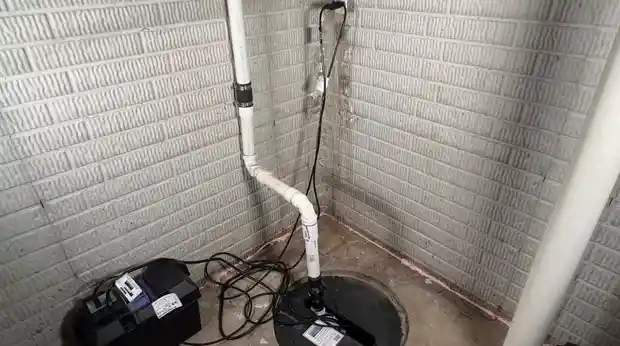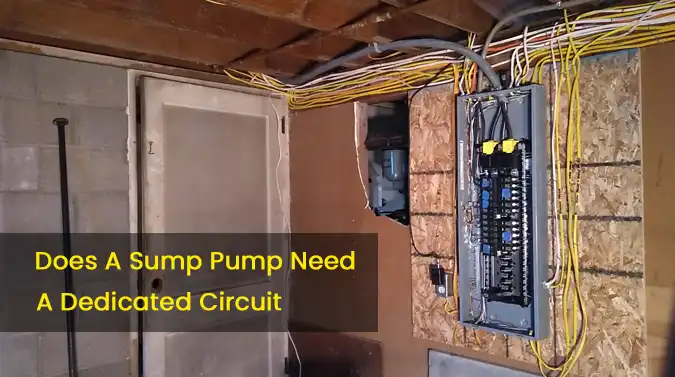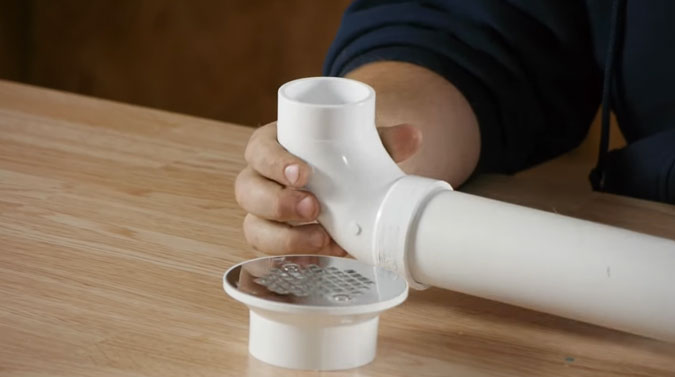Last Updated on May 7, 2023
A sump pump needs a dedicated circuit to ensure no risk of overloading your electrical system, increasing safety & reliable performance, and reducing maintenance costs. Installing a GFCI breaker on the dedicated circuit also protects against electric shock.
When deciding whether or not to install a dedicated circuit for your sump pump, there are several important considerations, such as the location of the pump, electrical loads, the size and capacity of your circuit breaker panel, and the type of breaker used.
Let’s uncover the need for a dedicated circuit to power your sump pump and ensure you have the proper protection.
Why Does a Sump Pump Need a Dedicated Circuit: 4 Reasons

Sump pumps are an indispensable part of any home in a flood-prone area. Installing a separate circuit to power the sump pump can provide some advantages, such as protection from overloading the electrical system, increased safety, reliable performance, and reduced maintenance Costs.
1. Reduced Risk of Overloading Electrical System:
A dedicated circuit for an electric sump pump helps to prevent overloading the electrical system, reducing the risk of circuit tripping or failing during heavy usage. This is important because sump pumps often need high power to operate properly and efficiently.
An isolated circuit will ensure that only the sump pump is powered by that specific outlet. Thus it avoids potential fire hazards and other issues caused by overloading circuits.
2. Improved Safety:
Installing a separate circuit for the sump pump also increases safety overall. Its dedicated circuit ensures proper grounding, reducing the risk of electric shock in areas prone to water accumulation.
Isolating the sump pump on its dedicated circuit eliminates any risk of overloading circuits that power other appliances in your home. Thus it prevents potentially hazardous electrical fires. Depending on local building codes and regulations, installing a separate circuit may be necessary to comply with the national electrical code.
3. Reliable Performance:
Installing a separate circuit ensures that your sump pump always has access to consistent power during operation. It doesn’t matter how many other things are plugged into different outlets in your home.
Having a dedicated outlet or power source also prevents issues like surges or voltage drops that could lead to premature failure or decreased backup sump pump performance over time.
4: Reduced Maintenance Costs:
A dedicated circuit installation will save you money on costly repairs in the long run. This protects against any potential damage caused by power fluctuations but also against any potential problems caused by competing for electricity with other devices on the same line.
Having its breaker limits any unexpected repair costs from sudden surges or issues with other appliances sharing power from one grid line.
Why do Sump Pumps Need GFCIs Besides a Dedicated Circuit?

Ground Fault Circuit Interrupters are vital components of an electrical system. It is designed to detect and cut off the flow of electricity when it senses an imbalance or interruption in the electrical circuit. Thus this GFCI outlet protects both people and property from potential harm.
1. Prevents Electric Shock:
Installing a GFCI on its own dedicated circuit ensures greater protection than when it is connected with other appliances or devices.
By having its own dedicated circuit, the GFCI will not be affected by any interference caused by other devices connected to the same circuit. This maximizes the device’s protection, keeping users safe from electric shocks.
2. Adequate Power Supply:
Power a GFCI off its dedicated circuit rather than sharing one with another appliance. It will ensure that an adequate power supply is available for the proper operation of the device.
When multiple appliances share a single electric current, they can draw more power than is available. It results in reduced performance or even damage to the equipment.
3. Optimal Performance:
A dedicated circuit ensures that all electricity going through the GFCI circuit breaker has been filtered through its internals before being supplied to any connected appliance or device. It reduces noise and interference from other circuits which could affect its performance or cause inaccurate readings.
Its separate circuit eliminates any possibility of overloading, which can have serious consequences, including electrical fire hazards. Overheating wires or circuitry wear out prematurely due to too much current running through them at once.
Deciding Whether to Install a Dedicated Circuit

When installing a sump pump, or any other electrical device, it is important to consider the capacity of the breaker panel, type of breaker and wiring used in the home. Installing a dedicated circuit helps to ensure that there is no interruption due to the overloading of other circuits in the house.
1. Location of Sump Pump
When installing a separate circuit for your electric sump pump, one of the first things to consider is the location of the sump pump and other electrical loads in your house. The best practice is to locate these devices on separate circuits from each other.
This prevents them from drawing too much power from one circuit, which can overload it. If you have multiple devices located on one circuit, you may need to upgrade your breaker panel to accommodate them all.
2. Size and Capacity of the Breaker Panel
The capacity and size of your breaker panel will determine how many circuits you can safely add without overloading it. You should know what kind of load each circuit in your home carries before attempting to add any additional ones with a dedicated line for your sump pump or other devices.
If you do not have enough spare capacity, upgrading your current panel or installing a new one may be necessary. It is important to ensure that all components are compatible with each other so that they are safe and efficient.
3. Type of Breaker and Electrical Wiring
It is also essential to determine what type of breaker and wiring are being used in your home when deciding whether or not you should add an extra power line for your sump pump.
Different types of wires carry different amounts of electricity, so using the wrong type could lead to dangerous situations, such as fires due to overheating wires.
Additionally, different breakers are designed for specific applications. Some are better suited for carrying larger loads than others, so choosing the right one is important for safety and efficiency.
Considerations When Installing a Dedicated Circuit for the Sump Pump

1. Hire an experienced electrician to upgrade your breaker panel or install the dedicated circuit.
2. Make sure to use appropriately rated electrical wires for the connections.
3. Install an appropriately rated ground-fault circuit interrupter (GFCI) to reduce the risk of electric shock.
4. Periodically test gfci to ensure that it is working properly.
5. Regularly inspect and maintain your sump pump system to ensure optimal performance.
What kind of breaker is best for a sump pump?
A Ground Fault Circuit Interrupter (GFCI) circuit breaker is the best breaker for a sump pump. This breaker is designed to detect and disconnect power quickly if a ground fault occurs, an unintended electrical connection between an active conductor and the ground.
This helps protect from electrical shock due to short circuits or other faulty wiring conditions. GFCI breakers are generally required for sump pumps and any other applications where water may be used near exposed electrical wiring.
What size breaker do you need for a submersible pump?
The size circuit breaker you need to purchase for a submersible pump depends on several factors such as its horsepower rating, voltage, and amperage. Generally speaking, you should use a two-pole circuit breaker with an appropriate overcurrent protection device rated for the same voltage as your pump.
For pumps operating on 120 volts with up to 1/2 horsepower, a 15-amp circuit breaker is usually sufficient. However, if you have higher horsepower ratings, you may need to go up to 20 amps, depending on the specifications of your particular model.
Can multiple sump pumps be connected to a single dedicated circuit?
It is possible to connect multiple sump pumps to a single circuit, although this is not recommended. When connecting multiple pumps to one circuit, ensure the circuit has enough capacity and that the total amperage of all pumps does not exceed the circuit’s amperage rating.
Use wiring of the appropriate size for the load to prevent damage or other issues from occurring. Consider the wire length required for any installation since longer runs will require larger wire sizes.
Can You Plug Your Sump Pump Into a Regular Outlet?

You are not recommended to plug your electric sump pump into a regular electrical outlet as high-powered appliances draw a lot of electricity. Overloading a regular outlet can cause the sump pump failure or even fire.
So it is recommended that you use a dedicated circuit with a GFCI breaker and appropriate size wire to power your sump pump safely. If you are unsure about any aspect of your wiring setup, contact an experienced electrician who can help guide you through the correct steps and ensure everything is installed properly and safely.
Keep Your Sump Pump Safe with a Dedicated Circuit
Plugging a sump pump in a dedicated electrical circuit and GFCI circuit breaker is essential for sump pump effectiveness.
Dedicating a circuit ensures that the sump pump won’t overload the electrical system and provides extra safety against electric shock. It also increases reliability and reduces maintenance costs in the long run.
Hiring an experienced electrician familiar with up-to-date building codes can help make this decision easier. Follow these steps to ensure that your home will remain safe from water damage due to malfunctioning equipment.


